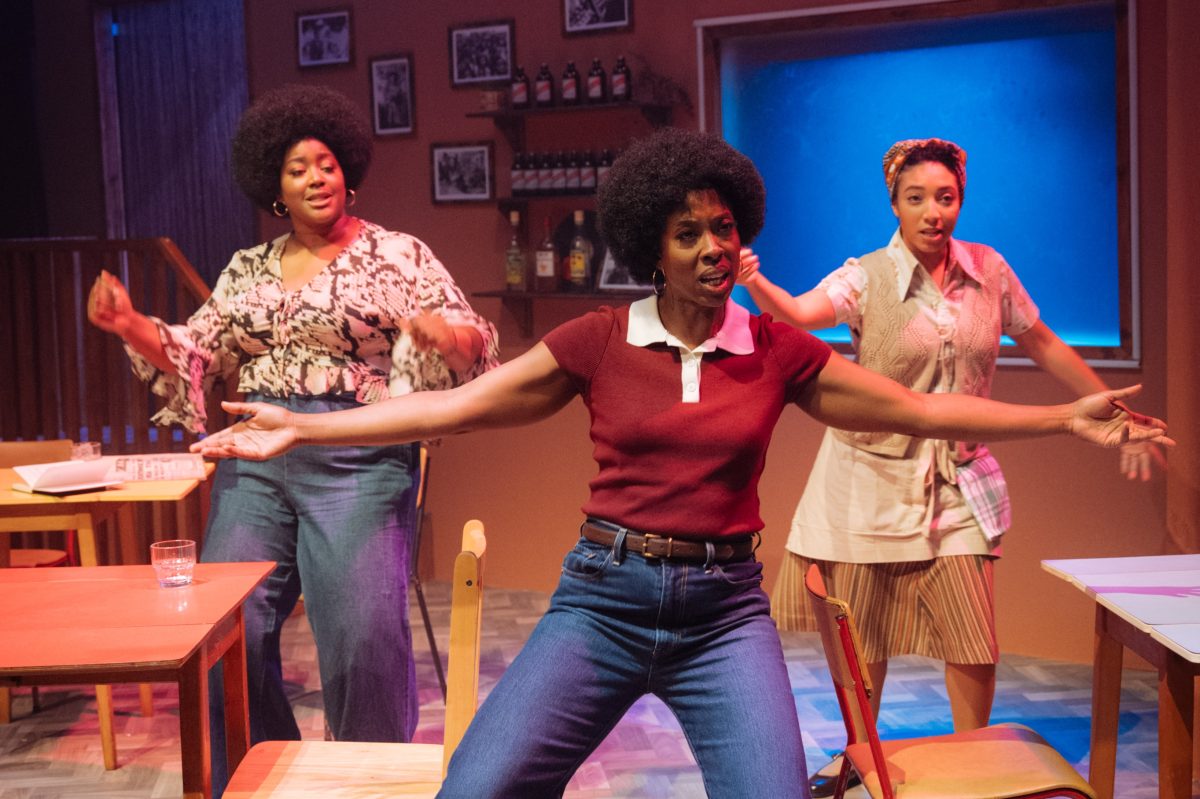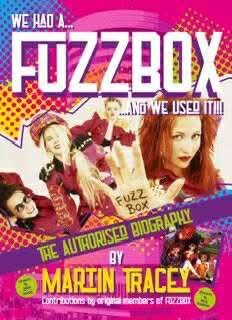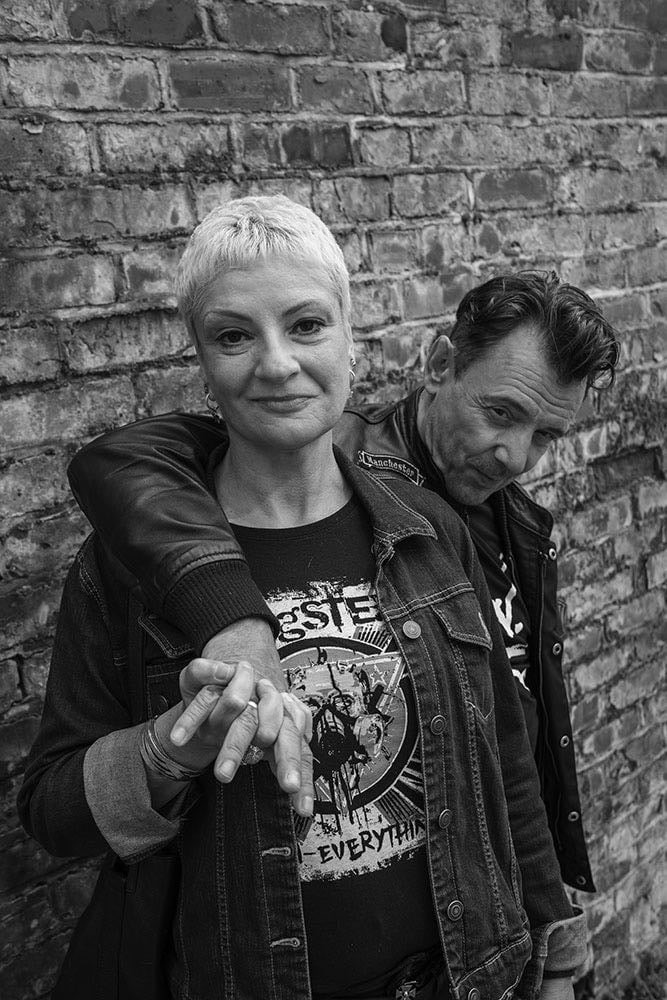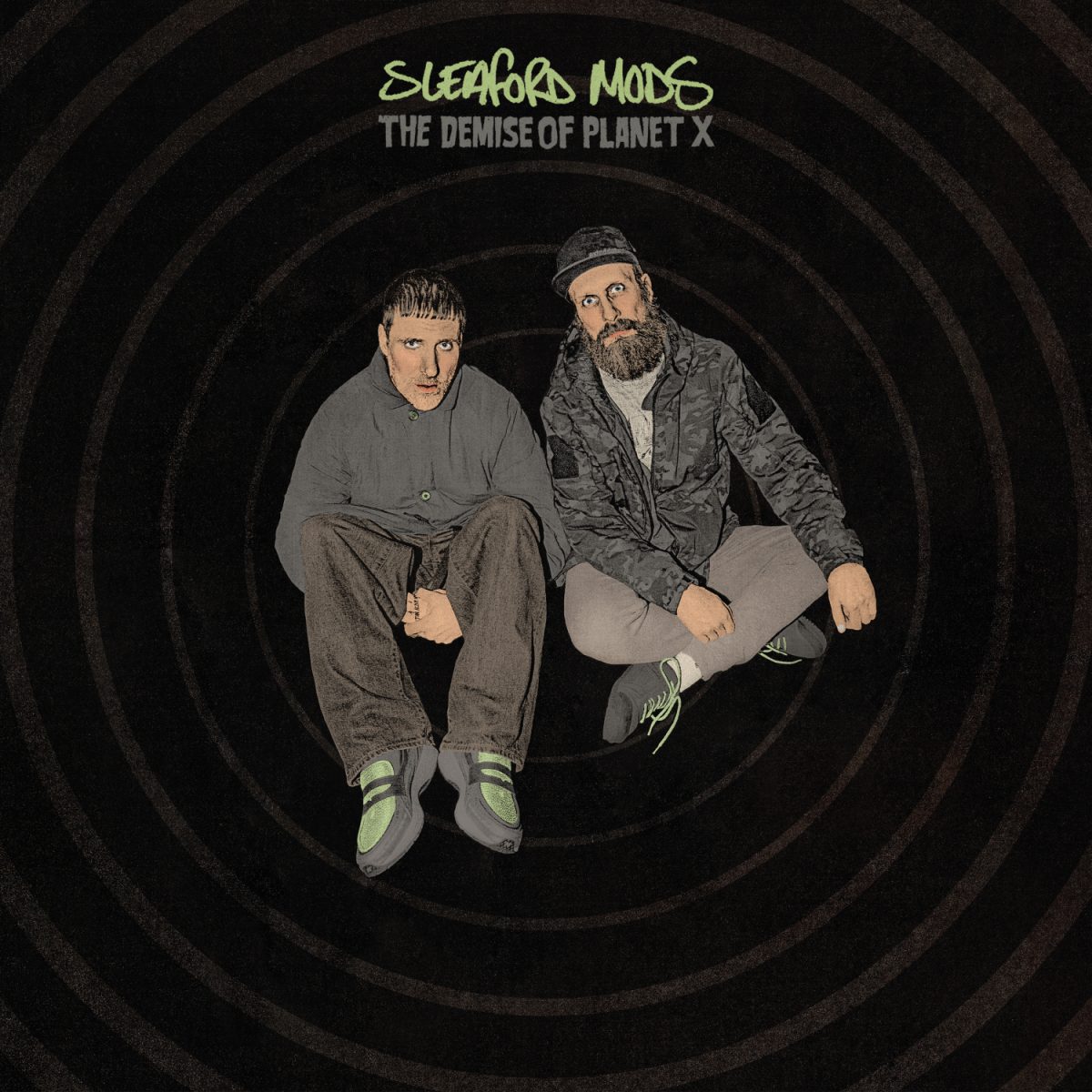Black Power Desk
Brixton House, London
5th September 2025
Equality isn’t subversive, or is it? Phil Ross went to Brixton House wondering if a musical about police surveillance of Black communities in the 1970s would resonate in today’s algorithm age. What he found was something he didn’t expect at all.
From 1967 to the early 1970s, Special Branch ran a unit known as the Black Power Desk, dedicated to spying on Black activists and community groups in Britain. Set in The Drum, a café and community hub in Harlesden, Black Power Desk recreates the space in vivid detail, formica tables, a bar stocked with Red Stripe and Wray & Nephew, red patterned carpet, and ’70s posters of Wattstax, Hendrix and Marley. Above it all, a balcony houses the police desk, a looming presence over the community.
On stage, the action cuts between the daily life of the café, the shifting dynamic of two grieving sisters, and the police machinations above – all moving with a cinematic rhythm that feels ready for screen as much as stage. Celia, played with power and vulnerability by Rochelle Rose, longs for love and a way to mourn their mother. Dina, played by Veronica Carabai, is drawn to activism in defiance of Enoch Powell’s Rivers Of Blood and the Mangrove Nine era, when Black communities organised against racism and harassment. High above the café, the spying police at the desk sneer, and scheme like a gathering storm on the horizon.

From the opening numbers, a three-piece band sets the tone with reggae, RnB and lovers’ rock. Is It Because I’m a Woman is a striking polished number with Brit School sheen that peels back into something raw, angry and unflinchingly direct. From there, the score and script shift the emotional gears – from intimate confession to open confrontation, from humour to anger, to the blunt realities of sexism and racism. The café becomes both a refuge and a battleground: an engagement party broken up by a police raid, fundraising events where solidarity collides with casual misogyny.
Enter Jack (Tomos Eames), the Irish guitarist who becomes Celia’s love interest, and cue “race traitor”, references to Bloody Sunday and the familiar “No Blacks, No Dogs, No Irish” trope that underlines the shared struggles of marginalised communities. The first half finishes with Can You See Me which, it seems to me, could easily hold its own in any West End production, and act two confirms my suspicion. The anthemic Black Defence League has us on the edge of our seats, ready to stand, ready to dance – part rallying cry, part celebration.
Police intrusion is at its most chilling when Officer Pullen (Alan Drake) conducts a humiliating, sexually inappropriate search of Maya (Chanté Faucher), the café’s owner. But when Officer Marks (Casey Bird) protests back at the desk, she’s dismissed and objectified in turn. The story is poised to pivot towards female solidarity, for the policewoman to empathise with Maya, but instead she slams the door hard shut, singing “I’m Jill from Dagenham, not some African bitch”. The sequence illustrates why some Black women view feminism as built on their exclusion, before the scene descends into a mad panto of sexism, racism and nationalism with the wonderfully written Queen and Country, where the officers justify police oppression with the chilling refrain: “only God can judge us.”

The songwriting simply goes from strength to strength, and by the time Rochelle Rose releases her inner Whitney, full of emotional clarity and sheer vocal power in I Can’t Let You Go, I’m fully convinced Black Power Desk has all the makings of a monster hit musical.
By the finale, song and story crest together in a triumphal surge of energy, and I’m on my feet with the rest of the ecstatic Brixton House audience – cheering, whooping and clapping.
Writer and lyricist Urielle Klein-Mekongo, composer Renell Shaw, director Gbolahan Obisesan and their team have crafted Black Power Desk to tell a dark chapter of Black British history with their own words, through their own lens: British bigotry, British beatings, pantomime policemen in Harlesden not Harlem.
And the message couldn’t be more timely. Of course equality can be made to look subversive; it entirely depends on which narrative you subscribe to, and who controls it. Just look at the UK’s unsustainable Palestine Action proscription, which ridiculously criminalises grannies with cardboard signs as terrorists. Or the more sinister Unite The Kingdom rally I recently reported on, where Elon Musk, alongside prominent far-right politicians, pushed a rape narrative hijacking Christianity to legitimise racism as patriotism.
Black Power Desk has the potential to be a huge, soaring musical hit that not only frames the Mangrove Nine alongside Angela Davis, but could sit with ease alongside Hamilton in the global canon of the Black struggle for equality.
But perhaps its most subversive message is this: We have the power to choose our own narrative.
More Info
Black Power Desk runs at:
Cast
Celia – Rochelle Rose
Dina – Veronica Carabai
Jarvis – Alexander Bellinfantie
Jack – Tomos Eames
Carlton – Gerel Falconer
Colin – Fahad Shaft
Maya – Chanté Faucher
Officer Pullen – Alan Drake
Officer Marks – Casey Bird
Creative Team
Books, Lyrics and Composition: Urielle Klein-Mekongo
Director: Gbolahan Obisesan
Lyrics and Rapperturgy Gerel Falconer
Music and Composition: Renell Shaw
Dramaturgy: Gail Babb
Set Design: Natalie Pryce
Costume Design: Jessica Cabassa
Sound Design: Tony Gayle
Lighting Design: Prema Mehta
Movement Direction: Jade Hackett
Casting Director: Aisha Bywaters CDG
~
Words by Phil Ross. More writing by Phil can be found at his Louder Than War author’s archive.
Photography: Helen Murray
A Plea From Louder Than War
Louder Than War is run by a small but dedicated independent team, and we rely on the small amount of money we generate to keep the site running smoothly. Any money we do get is not lining the pockets of oligarchs or mad-cap billionaires dictating what our journalists are allowed to think and write, or hungry shareholders. We know times are tough, and we want to continue bringing you news on the most interesting releases, the latest gigs and anything else that tickles our fancy. We are not driven by profit, just pure enthusiasm for a scene that each and every one of us is passionate about.
To us, music and culture are eveything, without them, our very souls shrivel and die. We do not charge artists for the exposure we give them and to many, what we do is absolutely vital. Subscribing to one of our paid tiers takes just a minute, and each sign-up makes a huge impact, helping to keep the flame of independent music burning! Please click the button below to help.
John Robb – Editor in Chief





